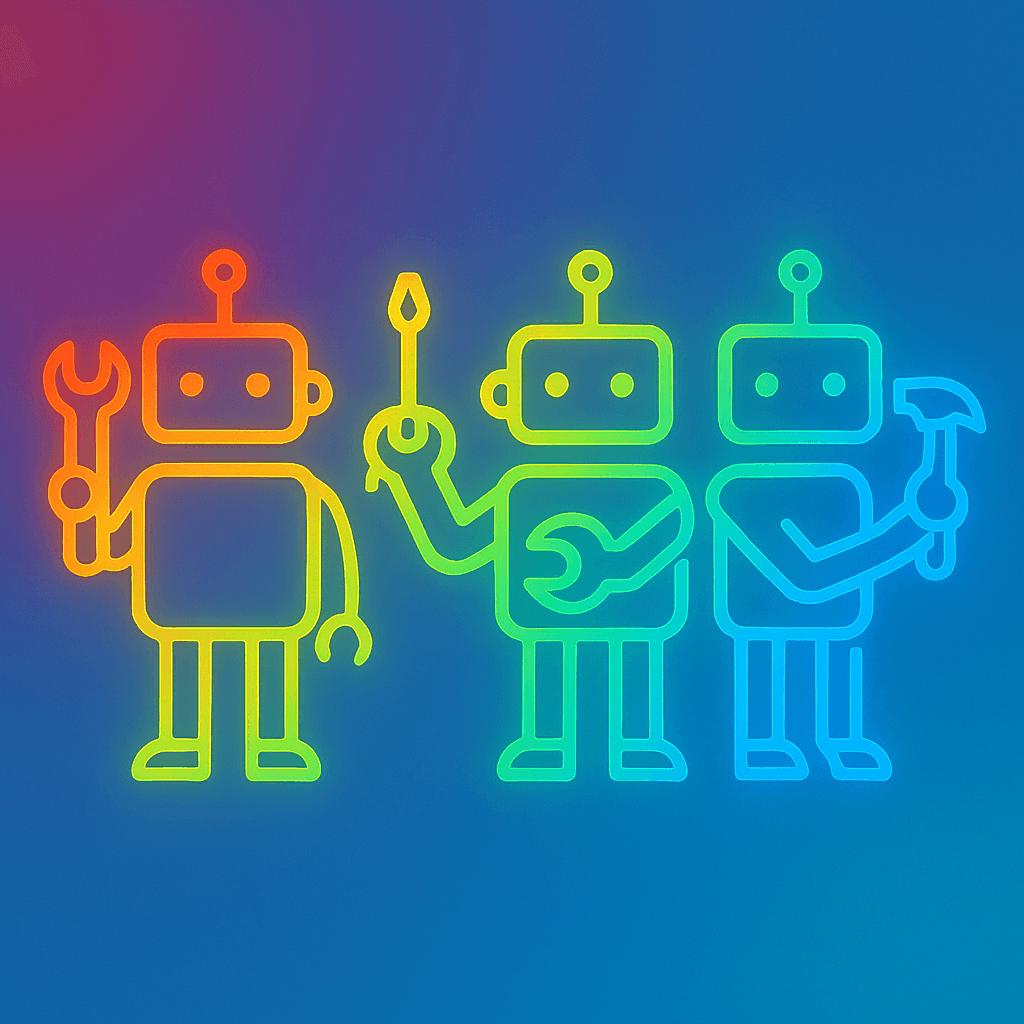
TL;DR What is Model Context Protocol and Why Should You Care?
The AI landscape is evolving rapidly, with new technologies emerging almost weekly. Among these innovations, Model Context Protocol (MCP) stands out as a potential game-changer for how AI agents interact with tools and services.
But what exactly is MCP?
Anthropic came up with this protocol with the idea of standardizing the way agents talk to tools. A tool is a skill that an agent can use – most of the time, agents will use other APIs. MCP is essentially a wrapper around APIs that makes it easier for agents to understand and use external tools.
Think of MCP as the universal translator between AI agents and the digital tools they need to accomplish tasks. Before MCP, each AI system had its own way of connecting to tools, creating a fragmented ecosystem. MCP aims to standardize these connections, making it easier for developers to build powerful, interoperable AI agents.
Why MCP is Becoming the Industry Standard
When Anthropic first released MCP, it was just one of several competing protocols. However, it's quickly gaining traction as the industry standard, with even OpenAI adopting aspects of it. What's driving this convergence?
Growing community adoption: "Week after week, the list of MCP servers keeps growing. New companies and big companies are making their own MCP servers."
Focus on agent accessibility: "MCP is really focused on how to make APIs accessible to agents."
Developer-friendly design: "You can super easily play around and build stuff very easily. They have really good documentation."
This standardization is crucial for the AI ecosystem. Just as MP3 became the standard for digital music, MCP is positioning itself as the standard for AI agent-tool interaction.
Building with MCP: The Developer Experience
For developers, MCP offers an exciting new way to build AI-powered applications. The experience of building with MCP has been described as wordware's engineers as "very rewarding" because it allows you to create something "that an agent can use more easily, to do valuable things."
The development process has evolved significantly:
Earlier limitations: "At first, the Anthropic team decided to use standard IO, which only enabled MCP servers to be local on your machine."
Recent improvements: "Recently they came out with two new modes of transport: SSE (server-sent events) and streamable HTTP. This enables hosted MCP servers, which really changed the game."
While there are still some friction points in the setup process, the barriers to entry are steadily decreasing. The Anthropic team is making progress on this, and they've recently added a way to add custom integrations by just putting a URL, which is game-changing.

The Future of AI Agent Tools with MCP
As MCP continues to mature, we're seeing glimpses of its transformative potential. There are several exciting developments on the horizon:
1. More Intelligent Tools
Currently, most MCP tools are simple wrappers around APIs. But what if these tools could be smarter?
What if you were to put more intelligence in those tools to make them smarter, and not have all the intelligence be at the model level? We're definitely exploring stuff around this area at Wordware.
2. Expanded Tool Ecosystem
The number and variety of MCP servers are growing rapidly. From ordering pizza to reorganizing your downloads folder, the possibilities are expanding daily.
3. Better Tool Discovery
As the ecosystem grows, finding the right tool becomes more challenging.
How would an agent find the right tool to use? That's definitely an open question. It's almost like building an app marketplace for AI.
4. Security Improvements
As MCP tools gain more capabilities, security becomes increasingly important:
Some MCP servers might contain security vulnerabilities. Some emerging marketplaces have little badges with security levels verifying that an MCP server is security approved.
Why Wordware is Investing in MCP
At Wordware, our mission is to bring structure and joy to human and AI collaboration. MCP aligns perfectly with this vision by standardizing how AI agents interact with tools, making powerful automation more accessible.
We're particularly excited about the potential for more intelligent MCP tools. By combining Wordware's document-based system with MCP's standardized approach, we're working to create tools that are not just wrappers around APIs, but intelligent collaborators in their own right.
Our vision is to put more intelligence in those tools to make them smarter, and not have all the intelligence be at the model level. We're definitely exploring stuff around this area, and I'm super excited about it.
Join the AI Agent Revolution
The standardization of AI agent-tool interaction through MCP represents a significant milestone in the evolution of AI. It's funny because we've been really surprised by how many companies have added their own MCP servers. It's already a good sign if people that are willing to change.
At Wordware, we're committed to being at the forefront of this revolution, building tools and technologies that make AI more accessible, powerful, and joyful to use.
Try Wordware for free. just describe your workflow in English and see it come to life.